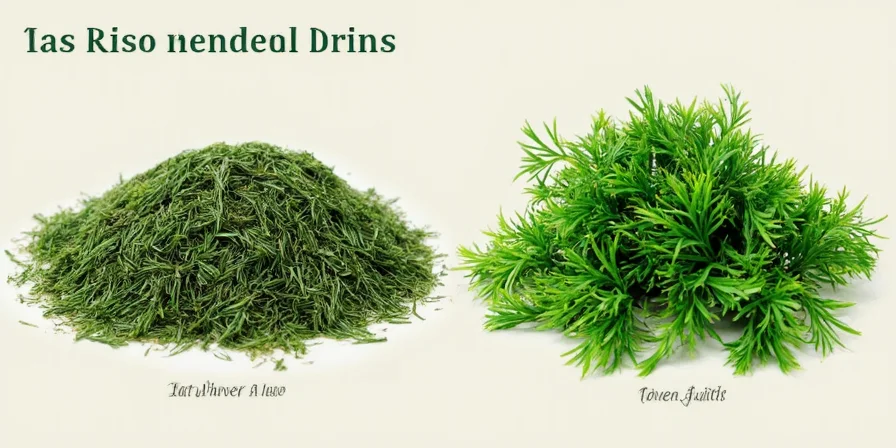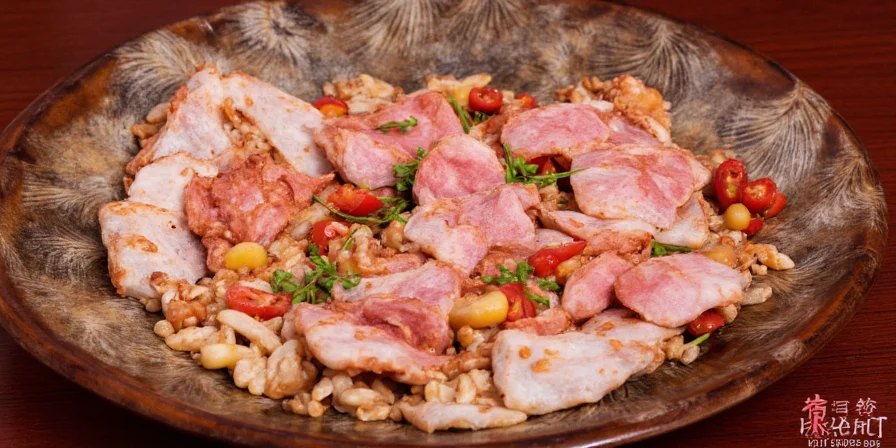Fresh Dill vs Dill Weed: The Great Herb Showdown – Who Wins Your Kitchen Crown?
Alright, herb enthusiasts and kitchen warriors, gather 'round! Today we're diving headfirst into the fragrant world of dill. Not just any old dill talk — this is the showdown you’ve been waiting for: fresh dill vs dill weed. Are they the same? Can you swap one for the other? Does it even matter? Let’s break it down like a culinary CSI episode — but way more fun and a lot tastier.
Table of Contents
- What Even Is Dill Anyway?
- Fresh Dill vs Dill Weed: What’s the Difference?
- Flavor Face-Off: Which One Packs More Punch?
- Practical Tips for Using Fresh Dill & Dill Weed
- Recipes That Love Dill (and You’ll Love Too)
- When to Swap and When to Surrender
- Storage Hacks: How to Keep Dill Fresh or Flaky-Fabulous
- Final Verdict: Fresh Dill or Dill Weed – Who Gets the Trophy?
What Even Is Dill Anyway?
Dill (Anethum graveolens) is an aromatic herb that smells like sunshine, lemon zest, and summer dreams. It’s a member of the parsley family and is native to the Mediterranean and parts of Asia. But here’s where things get interesting: dill comes in two main forms that most of us encounter in the grocery aisle:
- Fresh Dill: The leafy, lacy green stuff that looks like it belongs in a fairy garden.
- Dill Weed: The dried version — usually found in little bottles, ground into tiny bits.

Fresh Dill vs Dill Weed: What’s the Difference?
Let’s set the record straight. While both come from the same plant, their textures, flavors, and uses are as different as a crisp salad and a warm casserole. Here’s a quick visual comparison:
| Feature | Fresh Dill | Dill Weed |
|---|---|---|
| Form | Leafy, feathery greens | Dried, crumbled leaves |
| Flavor Intensity | Mild, citrusy, herbal | Stronger, earthier, slightly bitter |
| Shelf Life | Short – best within 7–10 days | Long – up to 1–3 years if stored properly |
| Best Use | Garnishes, dressings, cold dishes | Cooking, pickling, marinades |
Flavor Face-Off: Which One Packs More Punch?
Let’s imagine flavor as a concert lineup. Fresh dill is like the indie acoustic artist — subtle, nuanced, and perfect for setting a mood. Dill weed, on the other hand, is the lead guitarist — bold, punchy, and ready to steal the show.
Fresh Dill: Think bright, grassy notes with a hint of lemon and anise. Perfect for dishes where you want a light herbal lift without overpowering everything else.
Dill Weed: Earthy, robust, and slightly bitter. It can stand up to heat and time, making it ideal for long-cooked dishes or when you want a deeper dill presence.

Practical Tips for Using Fresh Dill & Dill Weed
If you’re new to using dill, don’t worry — you don’t need a culinary degree to master these tricks. Here’s how to level up your game:
- Use fresh dill at the end: Toss it in right before serving so its delicate flavor doesn’t fade away like a shy guest at a party.
- Add dill weed early: Since it’s dried and concentrated, let it simmer or roast with other ingredients to infuse that deep dill goodness throughout the dish.
- Pickling power: For those homemade pickles, dill weed is your BFF — it adds the classic tangy-dill flavor we all love.
- Garnish alert: Don’t throw out those fresh dill fronds! They make gorgeous garnishes for dips, soups, and seafood platters.
Recipes That Love Dill (and You’ll Love Too)
Whether you’re Team Fresh or Team Weed, here are some must-try recipes to unleash the dill beast inside you:
- Fresh Dill Classic: Lemon-Dill Salmon with Dill Garnish
- Dill Weed Warrior: Pickled Cucumbers with Garlic & Mustard Seeds
- Hybrid Hero: Greek Yogurt Dip with Fresh Dill & Dill Weed Base
- Cool & Creamy: Homemade Tartar Sauce with a Sprinkle of Fresh Dill
- Spice Up Your Life: Roasted Potatoes with Smoked Paprika & Dill Weed

When to Swap and When to Surrender
You might be wondering, “Can I use fresh dill instead of dill weed?” Or vice versa? Well, technically yes… but not always gracefully. Here’s the deal:
- Swap Fresh for Weed? Yes, but use twice as much. Remember, fresh herbs have water weight!
- Swap Weed for Fresh? Sure, but only in cooked dishes and reduce the amount by half. Otherwise, your food might taste like potpourri gone rogue.
- When NOT to Swap: If the recipe calls for dill as a garnish or raw topping (like in salads), skip the powdered stuff — it’ll look like you spilled sawdust.

Storage Hacks: How to Keep Dill Fresh or Flaky-Fabulous
No one likes sad herbs. Here’s how to store them so they stay fabulous until the last drop:
- Fresh Dill: Wrap it in a damp paper towel, put it in a ziplock bag, and stash it in the fridge. Or treat it like a bouquet of flowers — stand it upright in a glass of water and cover loosely with a plastic bag.
- Dill Weed: Store in an airtight container away from heat and sunlight. No need to refrigerate — it’s basically a survivalist herb.
- Freeze Fresh Dill: Chop it up, mix with olive oil, and freeze in ice cube trays. Boom — ready-made herb bombs for future dishes.

Final Verdict: Fresh Dill or Dill Weed – Who Gets the Trophy?
In the end, there’s no clear winner — because both have their superpowers. Like Batman and Iron Man, they just shine in different scenarios.
Choose fresh dill when you want elegance, subtlety, and eye candy on your plate. Go for dill weed when you need big flavor, long shelf life, and the ability to survive the heat of battle (read: oven temperatures).
So next time you reach for that jar or bunch of herbs, remember: dill isn’t just dill. And now you’ve got the knowledge to prove it.

Takeaway Recap
- Fresh dill = delicate, aromatic, short-lived.
- Dill weed = strong, earthy, shelf-stable.
- Substitute with care based on cooking method and timing.
- Store them smartly to preserve flavor and freshness.
- Both are winners — just in different arenas!











 浙公网安备
33010002000092号
浙公网安备
33010002000092号 浙B2-20120091-4
浙B2-20120091-4